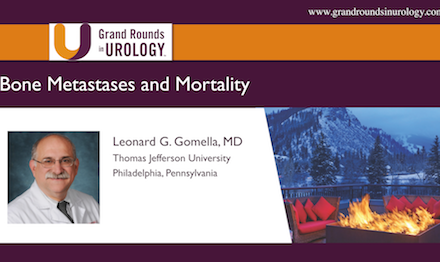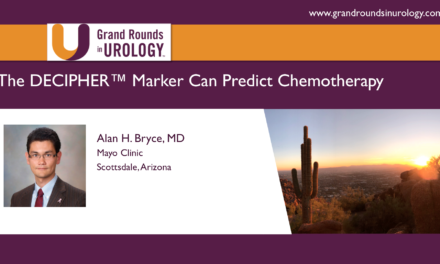Amirali Salmasi, MD, presented “Emerging Treatments for BCG Unresponsive Non-muscle Invasive Bladder Cancer” during the 29th Annual Perspectives in Urology: Point-Counterpoint, on November 18, 2021, in Coronado Island, San Diego, California.
How to cite: Salmasi, Amirali. “Emerging Treatments for BCG Unresponsive Non-muscle Invasive Bladder Cancer.” November 18, 2021. Accessed Apr 2024. https://grandroundsinurology.com/emerging-treatments-for-bcg-unresponsive-non-muscle-invasive-bladder-cancer/
Emerging Treatments for BCG Unresponsive Non-muscle Invasive Bladder Cancer
Amirali Salmasi, MD, Assistant Professor of Urology at the University of California, San Diego, discusses available and emerging treatments for bacillus Calmette-Guérin (BCG)-unresponsive non-muscle invasive bladder cancer (NMIBC). He begins by giving a brief history of intravesical BCG and explaining how BCG works, before moving on to discuss treatments for BCG-unresponsive NMIBC. Dr. Salmasi observes that valrubicin was the best available treatment for a long time, but suggests that some of the many emerging treatments may prove superior. He then summarizes recent and ongoing research into various potential therapies for BCG-unresponsive NMIBC, including: sequential gemcitabine and docetaxel; intravesical cabazitaxel, gemcitabine, and cisplatin; chemohyperthermia treatment; CG0070, an oncolytic adenovirus; superagonist N-803; intravesical nadofaragene firadenovec gene therapy; and pembrolizumab. Dr. Salmasi concludes that, for the moment, the gold standard treatment for a patient with BCG-unresponsive bladder cancer remains radical cystectomy, but he argues that if someone is not eligible for or turns down cystectomy, pembrolizumab is now the go-to rather than valrubicin, although this may change depending on the results of some of these ongoing trials.
About the 29th Annual Perspectives in Urology: Point Counterpoint conference:
Presented by Program Chair and Grand Rounds in Urology Editor-in-Chief E. David Crawford, MD, this conference brought together leading experts in urology, medical oncology, and radiation oncology to discuss and debate the latest topics in genitourinary cancers, primarily prostate cancer and bladder cancer. This interactive conference offered topical lectures, pro/con debates, interesting-case presentations, interactive panel discussions, and interactive audience and faculty networking.




